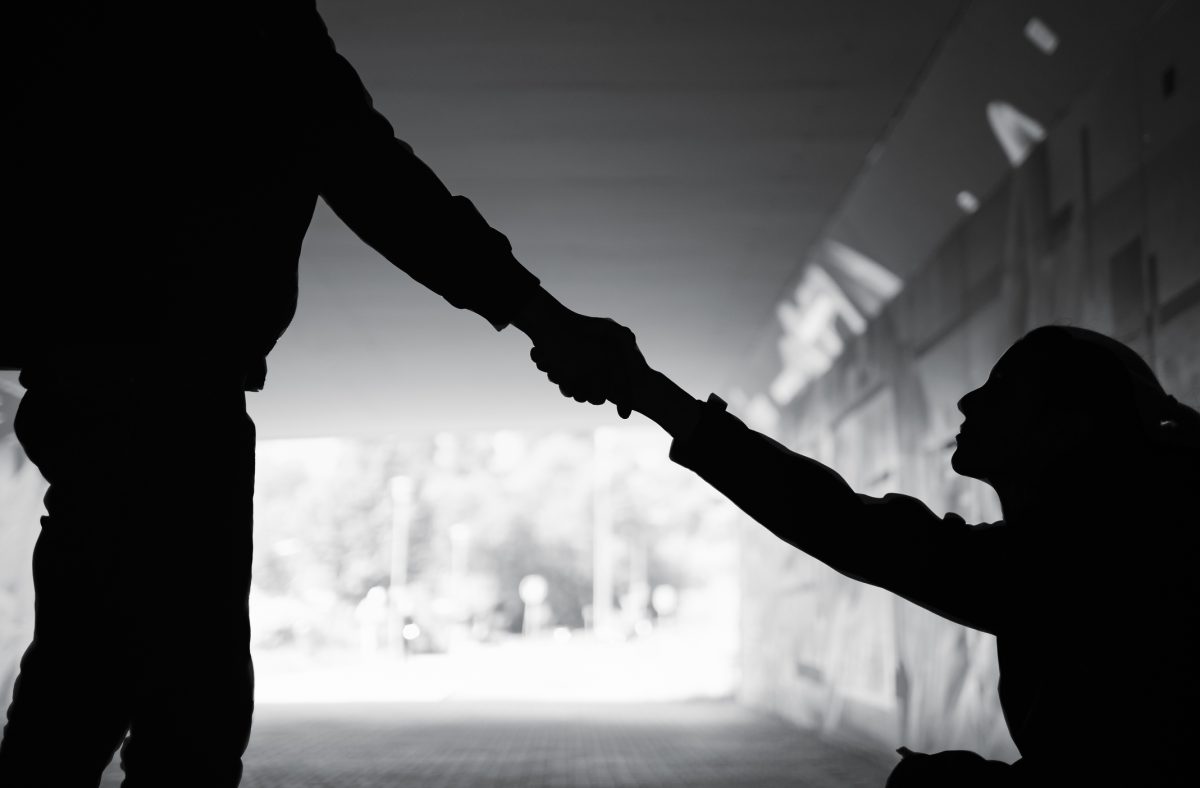
Are Canberrans kind to strangers? Photo: File.
Picture this: it’s a busy afternoon and you’re on your way home from work. You’re walking through the town centre of your bustling city, headphones in, hands full with a laptop, bag and a coffee cup. Suddenly, the shoelace from one shoe gets caught in the other shoe. The next minute, you slam to the ground and everything sprawls from your hands – it’s the kind of full-on stack you haven’t had since you were a kid.
You sit up, confused and disoriented, your knees throbbing and the skin ripped off your palms. Your belongings are scattered all around you. People are everywhere – but not a single person stops to help you. One man even steps over you to keep walking past.
The only person who finally does acknowledge you is a homeless guy who is asking people for loose change down the road. He comes over and says, “That was quite a fall. You ok?” And with a nod of commiseration, is gone.
This scenario happened to my good friend in Edinburgh this week, and she messaged me in shock. I too was shocked – I immediately said to her, “That would never happen in Canberra – someone would definitely have stopped to help you.”
“Well,” she replied, “That’s what I would have said about Edinburgh, before yesterday.”
It got me thinking – are people nice to strangers anymore? Would people stop if I suffered a similar stack in Garema Place?
It tied into another conversation I was having with my sisters, about whether we would stop if there was a car stuck on the side of the road, especially in the rural areas where my parents live. I was conflicted. On one hand, my impulse is to stop, not because I would be particularly helpful but because I could at least call someone for them or offer them a lift.
But then a second, more cynical impulse tells me that it could be risky for me to pull over to help a stranger, especially in an isolated location – what if they stole from me, or assaulted me? How could you really know if they were genuinely in need of help?
My sister, who is an SES volunteer and good samaritan, immediately admonished me for this sentiment. She stops all the time, including very late at night, to help strangers on the side of the road change tyres or call for roadside assist, and she says she has never once felt unsafe. It made me feel a bit ashamed because I know that if I were stuck on the side of the road, I would 100 per cent hope someone would stop to help me if I needed it.
So which of us reflects the majority of Canberrans? In the first scenario, I am confident I would stop to help anyone who fell over or dropped something in a public place. I’ve had the opportunity before, and have always helped, and can’t imagine a scenario where I wouldn’t.
But if it’s dark at night and I drive past someone in need, and there’s no one else around, I might think twice about assisting directly – I’d be more likely to call for help, from a safe distance, even though my anxiety is not rooted in the real likelihood of someone’s call for help being a malicious ploy to hurt me and almost definitely comes from having watched far too many crime dramas.
I’m not so sure now, either, if other people would be as quick to help me in a similar scenario as I’ve always assumed.
My friend who fell over in Edinburgh didn’t sustain any lasting injuries, but has suffered a loss to her faith in humanity. And she’s unlikely to wear those shoes again in a hurry.





















